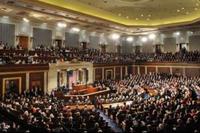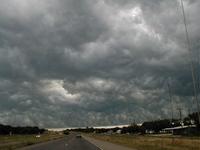-
Impasse in Congress over terrorism insurance (TRIA) renewal

The Terrorism Risk Insurance Act(TRIA) is expected to expire by 31 December unless Congress renews the legislation or places a temporary extension. The legislation, initially established in November 2002 as a federal backstop to protect insurers in the event an act of terrorism results in losses above $100 million, has been extended and reauthorized. The insurance industry supports the reauthorization approved by the Senate, and opposes a short-term extension. Some insurance companies have noted on their contracts that policyholders could lose terrorism coverage if TRIA is not renewed.
-
-
Climate-related businesses growing
The business of climate change has seen significant growth in the last decade, but analysts believe it will take many more years to determine the effectiveness of the solutions proposed by climate-focused businesses. U.S. farmers working more than fifty million acres had subscribed to its Climate Basic Service— a free Web and mobile service that analyzes data to help farmers make planting decisions with “field-level insights, from soil moisture levels, to crop growth stage, to current and future weather.” The group’s free app and Web service may be augmented through its Climate Proand Precision Acrepaid plans.
-
-
Resting place of 2 million barrels of oil missing from Deepwater Horizon accident found
Where is the remaining oil from the 2010 Deepwater Horizon disaster in the Gulf of Mexico? The location of two million barrels of oil thought to be trapped in the deep ocean has remained a mystery. Until now. Scientists have discovered the path the oil and followed it to its resting place on the Gulf of Mexico sea floor. By analyzing data from more than 3,000 samples collected at 534 locations over twelve expeditions, the researchers identified a 1,250-square-mile patch of the sea floor on which four to 31 percent of the oil trapped in the deep ocean was deposited. This is the equivalent of 2 to 16 percent of the total oil discharged during the accident.
-
-
Insurance companies now write Ebola exclusions into policies; offer Ebola-related products
U.S. and British insurance companies have begun to write Ebola exclusions into their policies for hospitals, event organizers, airliners, and other businesses vulnerable to disruption from the disease. As a result, new policies and renewals will become more expensive for firms looking to insure business travel to West Africa or to cover the risk of losses from Ebola-driven business interruptions (BI).The cost of insuring an event against Ebola, for example, would likely be triple the amount of normal cancellation insurance — if the venue was in a region not known to be affected by the virus.
-
-
Napa Valley residents debate necessity of earthquake insurance
Many residents of the Napa Valley in California are weighing the benefits and costs of earthquake insurance in the wake of the 24 August quake, which heavily damaged many homes and businesses in the region. The high premiums of earthquake insurance are deterring many home and business owners, despite the real threat of intensive damage.Only 6 percent of Napa Valley residents had earthquake insurance, andonly 9 percent of California businesses have coverage.
-
-
U.S insurance sector showing “profound lack of preparedness in addressing climate-related risks”: Report
Amid growing evidence that climate change is having wide-ranging global impacts which will worsen in the years ahead, a new report ranks the nation’s 330 largest insurance companies on what they are saying and doing to respond to escalating climate risks. The report found strong leadership among fewer than a dozen companies but generally poor responses among the vast majority. “Despite being on the ‘front line’ of climate risks, most of the company responses show a profound lack of preparedness in addressing climate-related risks and opportunities,” says the president of the organization sponsoring the report.
-
-
Surge in cyberattacks drives growth in cybersecurity insurance
More than 3,000 American businesses were hacked in 2013, many of them small and mid-size firms without cybersecurity insurance. That surge in cyberattacks has led to a growing cybersecurity industry, with firms offering products and solutions to secure network systems. Insurance companies are also claiming their stake in the booming industry. Today, roughly fifty U.S. companies offer cybersecurity insurance. American businesses will spend up to $2 billion on cyber-insurance premiums this year, a 67 percent increase from the $1.2 billion spent in 2013.
-
-
Uncertainty over terrorism insurance act’s renewal upsets industry
The Terrorism Risk Insurance Act (TRIA) is set to expire at the end of this year unless Congress renews the program, which will likely include reforms required by House Republicans. Congress passed TRIA in 2002 after the 9/11 attacks to encourage insurance companies to continue terrorism coverage as part of commercial policies after many feared that doing so would lead to greater financial loss should another terror attack occur.
-
-
Growing cyberthreats lead to growing interest in cybersecurity insurance
The increasing sophistication and scope of cyberattacks on businesses – and the increasing damage such attacks are causing – have led to growing interest in cybersecurity insurance. The industry is urging the government to treat cyberattacks as acts of terrorism which should be covered under the Terrorism Risk Insurance Act(TRIA), while also looking into how the Stafford Actcould help companies after a cyberterror attack. At the same time, more private insurers are offering limited cyber-coverage, but many say they would discontinue selling cyber policies if TRIA is not renewed. As the term “cyber-coverage” continues to be defined by large insurers, the insurance product lines continue to change.
-
-
Energy companies slow to buy cyberdamage insurance
The U.S. oil industry will spend $1.87 billion on cybersecurity defense systems by 2018, but less than 20 percent of U.S. companies overall are covered for cyberdamages. “Imagine what could happen if a large refinery or petrochemical facility’s safety monitoring systems were hijacked near an urban area, or a subsea control module was no longer able to be controlled by the people who should be controlling it,” says one expert. “As we’ve all seen from Deepwater Horizon [the 2010 BP Gulf oil spill] those risks and damages can be astronomical. It requires an immediate response.”
-
-
Assessing flood risk in a changing climate
Growing consensus on climate and land use change means that it is reasonable to assume, at the very least, that flood levels in a region may change. In an argument grounded in an analysis of the inherent limitations of statistical analyses, the authors of a new study suggest that researchers’ typical starting assumption that flood behavior is not changing — even in the face of suspected trends in extreme events and knowledge of how difficult such trends are to detect — causes water managers to undervalue flood protection benefits, opening the door to unnecessary losses down the line.
-
-
How affordable is the U.S. National Flood Insurance Program?
There is often tension between setting insurance premiums that reflect risk and dealing with equity/affordability issues. The National Flood Insurance Program (NFIP) in the United States recently moved toward elimination of certain premium discounts, but this raised issues with respect to the affordability of coverage for homeowners in flood-prone areas. Ultimately, Congress reversed course and reinstated discounted rates for certain classes of policyholders.
-
-
As TRIA is set to expire in December, reauthorization by Congress is not a sure thing
After the 9/11 attacks, the U.S. insurance industry sustained an estimated $32.5 billion in total losses. In 2002, to encourage insurance companies to continue covering terrorism as part of commercial policies after many dropped the coverage for fear of more financial loss should another terror attack occur, Congress passed the Terrorism Risk Insurance Act(TRIA).There has yet to be a TRIA payout due to the absence of a large-scale terrorist attack since the law went into effect. With TRIA expected to expire on 17 December 2014, businesses and some members of Congress are advocating the extension of the legislation, but two pending proposals in Congress have yet to gather the needed support to reauthorize TRIA.
-
-
Demand for cyberattack insurance grows, but challenges remain
The surge in cyberattacks against the private sector and critical infrastructure has led to a growth in demand for cyber insurance; yet most insurers are unable properly to assess their clients’ cyber risk, let alone issue the appropriate pricing for their cyber coverage.Insurers which traditionally handle risks like weather disasters and fires, are now rushing to gain expertise in cyber technology.On average, a $1 million cyber coverage could cost $20,000 to $25,000.
-
-
April storms lead to first billion-dollar losses of 2014

The outbreak of severe weather throughout the United States and other parts of the world in April will prove to have caused the largest economic losses since 2013, according to a report. During the month in the United States, at least 39 people were killed and 250 injured amid nearly 70 confirmed tornado touchdowns, which occurred across more than 20 states in the Plains, Mississippi Valley, Southeast, Midwest, and Mid-Atlantic.
-
- All
- Regional
- Water
- Biometrics
- Borders/Immig
- Business
- Cybersecurity
- Detection
- Disasters
- Government
- Infrastructure
- International
- Public health
- Public Safety
- Communication interoperabillity
- Emergency services
- Emergency medical services
- Fire
- First response
- IEDs
- Law Enforcement
- Law Enforcement Technology
- Military technology
- Nonlethal weapons
- Nuclear weapons
- Personal protection equipment
- Police
- Notification /alert systems
- Situational awareness
- Weapons systems
- Sci-Tech
- Sector Reports
- Surveillance
- Transportation
Advertising & Marketing: advertise@newswirepubs.com
Editorial: editor@newswirepubs.com
General: info@newswirepubs.com
2010-2011 © News Wire Publications, LLC News Wire Publications, LLC
220 Old Country Road | Suite 200 | Mineola | New York | 11501
Permissions and Policies
Editorial: editor@newswirepubs.com
General: info@newswirepubs.com
2010-2011 © News Wire Publications, LLC News Wire Publications, LLC
220 Old Country Road | Suite 200 | Mineola | New York | 11501
Permissions and Policies
